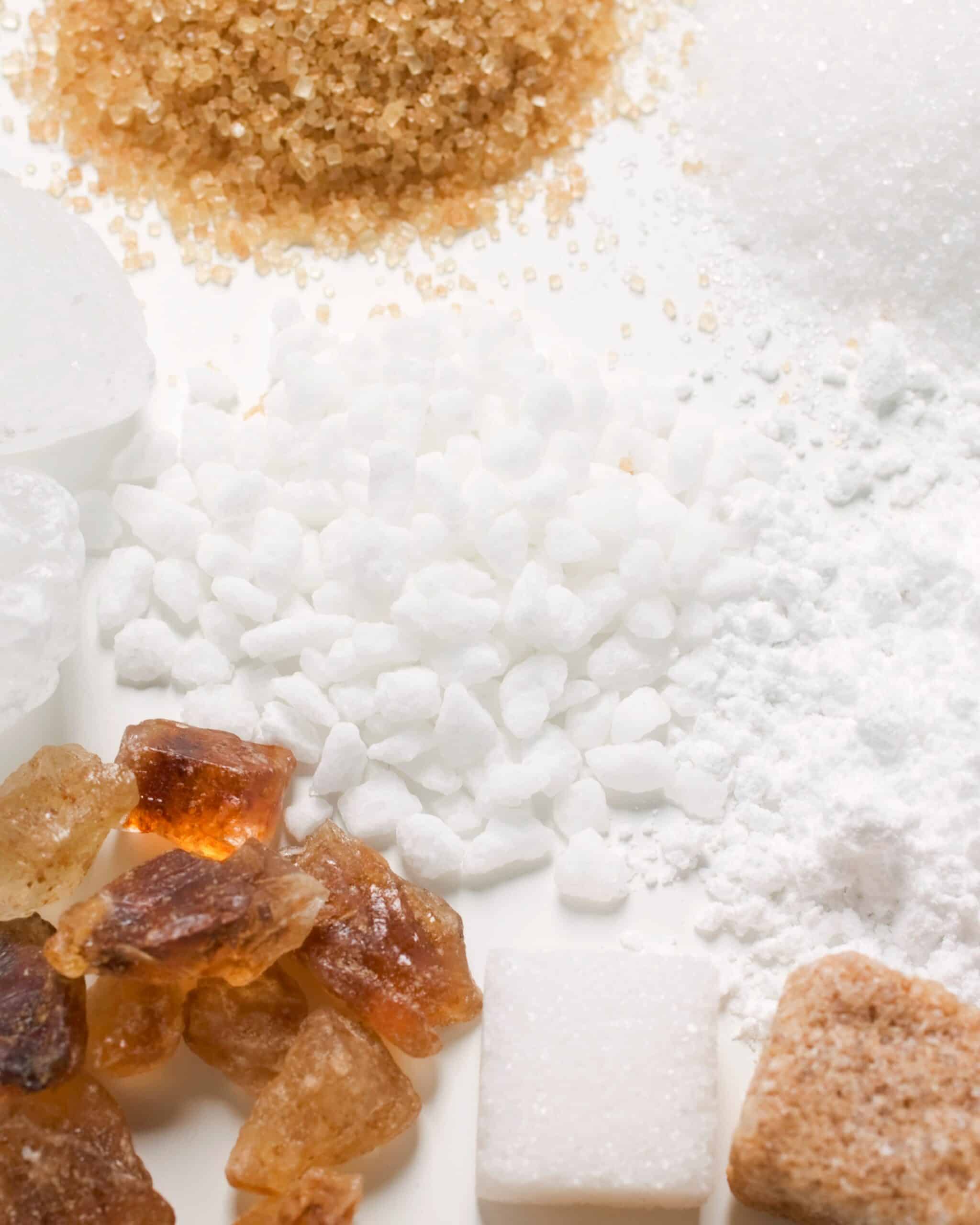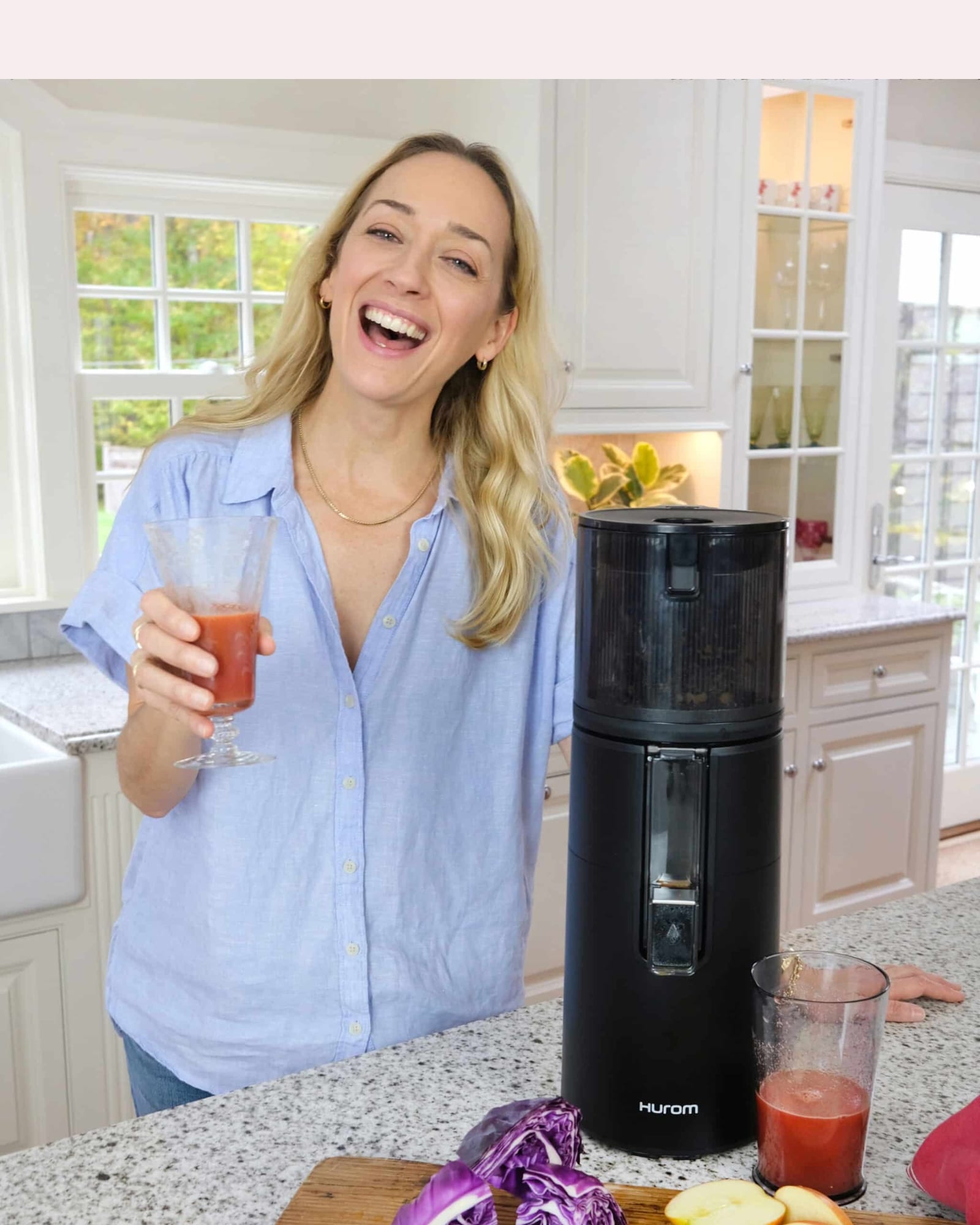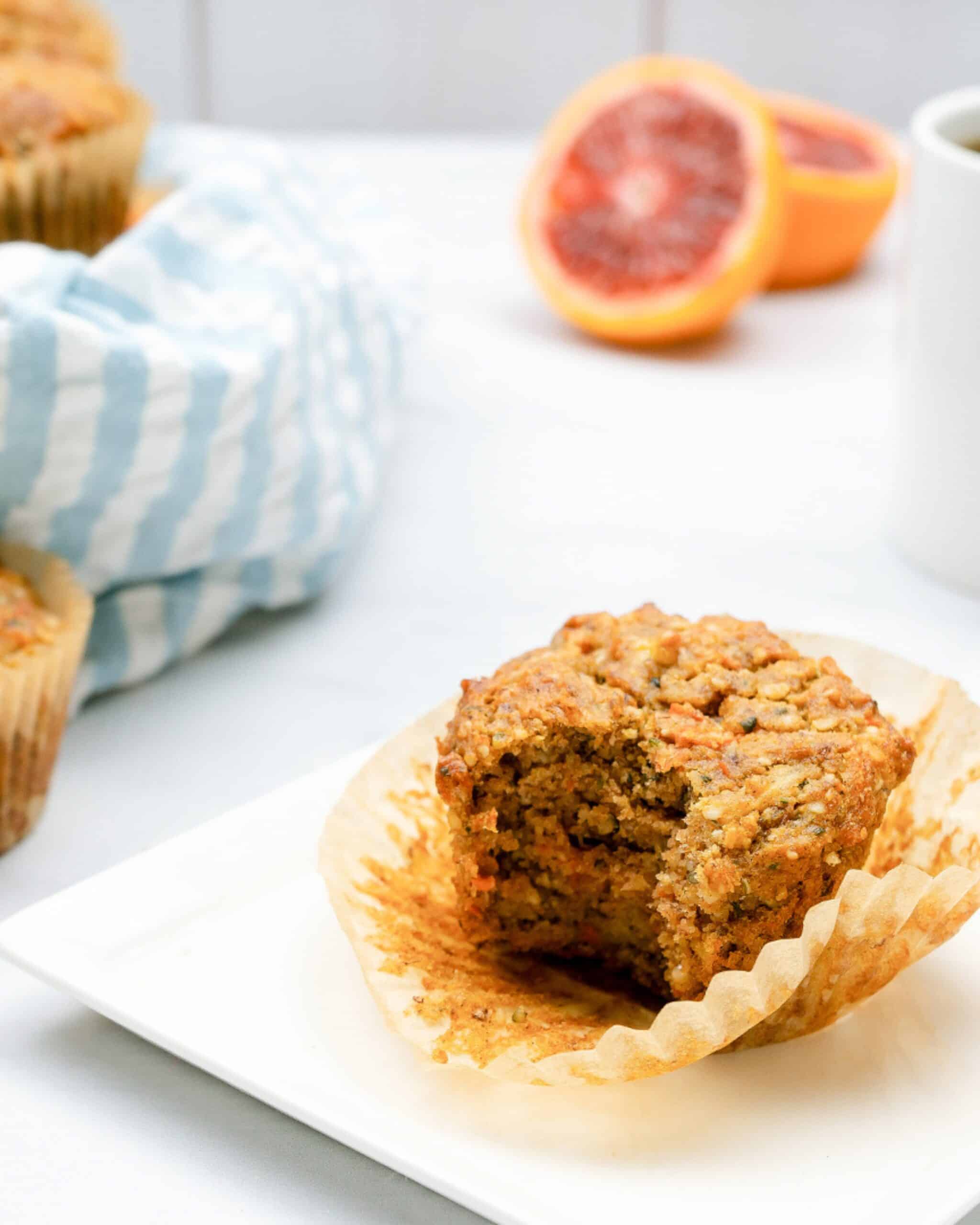Hiya Sweet Friend,
Check out this super informative guest article by Jacki Glew, MS, RD, LDN from my blog archives. Happy reading—take it away Jacki!
xo, Kris
Does sugar feed cancer? Well, yes and no. Um, OK – yes.
All cells use sugar – aka glucose – for their primary fuel source, so sugar does indeed feed all cells. But if you’ve ever had a PET scan, you know that before you get your scan, you get to drink a lovely shake of radioactive glucose or get an injection of a similar concoction. Cancer cells are very greedy; they like to gobble up glucose much more quickly than non-cancerous cells, which is why the cancer cells light up on the screen during your scan.
All carbohydrate-containing foods contain sugar to some degree. So this means even healthy foods like whole grains, beans, fruits, and even vegetables contain some sugar. The glycemic index basically tells you how fast a particular food will raise your blood sugar level. For instance, we know refined/processed foods like white sugar, white bread and white rice are high glycemic foods, but so are healthy foods like watermelon and potatoes. The glycemic load of a meal takes into account the whole meal. Sometimes eating higher glycemic foods along with lower glycemic foods can blunt the rise in blood glucose when eaten together.
Why is your blood sugar level a concern? Because your body produces insulin and insulin-like growth factor-1 (IGF-1) whenever your blood sugar level rises. We know insulin helps regulate blood sugar, but did you know insulin is also a growth hormone? So is IGF-1, which reacts in response to insulin production. So more sugar eaten = more insulin produced = more IGF-1 produced = more cancer cell growth. Yikes! In fact, IGF-1 has been found through a number of studies to play a big role in promoting breast, lung, prostate, and other types of solid tumor growth (study). IGF-1 has a growth-promoting effect on almost every cell in the body especially in muscle, bones, liver, kidney, nerves, skin, lungs and blood. IGF-1 also affects the DNA synthesis within these cells.
If you have an advanced cancer, you need to be even more aware of your blood sugar level since rapidly growing cancer cells consume more glucose to keep up with their growth spurt. And if you are on chemotherapy, high levels of insulin and IGF-1 can play a role in blocking chemo activity making cancer cells less responsive to chemotherapy. If you have a hormonal cancer such as breast, endometrial or uterine cancer, then IGF-1 is also a concern as estrogen receptors on cancer cells can be stimulated by IGF-1. IGF-1 has even been found to interfere with the effectiveness of the drug trastuzumab.
What can you do about it?
1. Plant in your mind that plants are best!
A plant-based diet lowers your daily glycemic load so less insulin and IGF-1 are produced in response to your blood sugar level. A diet chock full of veggies, whole grains, nuts, beans, legumes, and fruits will not raise your blood sugar as much as a diet full of white stuff like white sugar, white rice, white bread, etc. Foods that grow out of the ground are naturally low in sugar and high in fiber. Fiber helps to slow the release of sugar into the bloodstream, resulting in the production of less insulin and IGF-1. Now here’s the kicker: switching to a plant-based diet will help you to cut back or eliminate animal foods, which will lower your IGF-1. Your body naturally produces IGF-1. We need this growth hormone for – you guessed it – growth. As babies, we need IGF-1 to help us grow, but then stop drinking mother’s milk. Somewhere along the line, humans began drinking animal milks that also contain natural IGF-1. Americans love milk and cheese and yogurt and ice cream … you get the picture. IGF-1 in animals is identical to IGF-1 in humans, so the more we consume dairy, the more we consume IGF-1 (source). IGF-1 is also in animal meats and fats. Eliminating red meat, poultry and dairy will significantly help reduce your IGF-1.
2. Stop eating junk!
Cut out refined and processed foods and stick to stuff Mother Nature made. No more candy, soda, white bread, white rice, ice cream, or even white potatoes. Switch to whole grains like brown rice, quinoa and steel-cut oats. Choose starchy veggies like sweet potatoes, Yukon Gold potatoes, squash and pumpkin.
3. Watch your sweetener intake.
No more high-fructose corn syrup, evaporated cane juice or dextrose. While you’re at it, cut out artificial sweeteners like sucralose, saccharin, aspartame and acesulfame potassium. If you must sweeten your foods or if you like to bake, try stevia leaf, brown rice syrup or maple syrup in small amounts – less than five teaspoons per day.
4. Get moving!
Exercise helps to lower blood sugar levels by sensitizing cells to insulin and helps them take in more glucose for fuel rather than letting glucose float around in the blood where it can do damage. Exercise also helps lower IGF-1 by increasing a binding protein that acts like a magnet to IGF-1 and makes it less available to cancer cells for growth (study).
5. Know your numbers.
Ask your doctor to check your fasting blood glucose, insulin and IGF-1 levels. Most doctors would consider a normal glucose level to be between 70-100 mg/dL, but new evidence has suggests that glucose between 70-80 mg/dL is optimal. Levels above 100 mg/dL might indicate prediabetes or even full-blown diabetes. Insulin can help your doctor check for insulin resistance. Insulin should be between 5-20 microunits/mL. Anything above this could indicate insulin resistance. Optimal IGF-1 levels are based on your age and sex. Laboratory results will show your ideal range. Your level should be in the bottom half of that range.
Jacki Glew, MS, RD, LDN, was the clinical nutrition manager at the Block Center for Integrative Cancer Treatment. She and four other dietitians worked with the Block Center’s integrative staff to create individualized and scientifically based nutrition and supplement plans for people battling cancer.
To your sweet health,




Check all your foods out in the search bar at charity Nutrition Facts (no corporate sponsorship). Dr McDougall is fab too. Peace 🙂
Check them out at charity Nutrition Facts. I hope this helps.
Hi Kris, can you recommend a particular brand of stevia sweetener? I’m finding numerous options out there, and am not sure if one is as good as the next. Are there additives to look out for under the ingredients? I’m shopping particularly for something to sweeten my beverages. Thank you!
Sure wish others fighting cancer as my self would take the time to learn more about all the poison their putting in their body . and how bad sugar is for them ! Of course i had to learn the hard way. But I’m glad i did Vegan is my new name!! Thanks for all the info you put out there for our owe good !!
Hi Kris,
Thank you for your blogs, they are very insightful.
Can I ask your opinion on honey?
Many thanks,
Eloise
Hi there! This is Jennifer at Team Crazy Sexy. In Crazy Sexy recipes, you’ll see pure maple syrup used sparingly from time to time. It has a wonderful flavor and is a better option than agave nectar, honey or fruit juice concentrates because they are mostly fructose, whereas maple syrup is sucrose. Honey has less fructose than agave, but it is not a plant-based sweetener, is quite high in sugar and calories overall (64 calories per tablespoon), and it still has 40 percent of the sugar as fructose, which has been shown to work similarly to high-fructose corn syrup in the body. While we recommend maple syrup as the lesser of the evils in the natural sugar category, it is still recommended sparingly because it has 52 calories per tbsp. Hope that helps!
Most interesing article which explains in very easy to understand terms. After almost ten years as a diabetic, I now understand much better all the things I have been told, than ever before.
Thank You!
Hi John,
Diabetic here. Just wanted to mention regarding using cinnamon… be sure it’s Ceylon (found in health food stores) NOT what you get at supermarkets/Wal-Mart. The Ceylon Cinnamon is much better for diabetics (actually everyone).
Best to you!
I have diagnosed with cancer. I also have diabetics. I found your article very interesting and wanted to know more. Can you help me?
Check out Dr Neal Barnard’s Scientifically Proven Program For Reversing Diabetes (plant-based). This should help you. Warmest wishes.
Plants really are the best for the body, the bad carbs need to be cut though. I mean most of the diet fads have a little truth when they mean cut out the bad carbs. The sad part though is yeah we have more sugar in our diet than ever before and we have a higher cancer rate per capita than ever before. Time to change!
Thank you all for your wonderful comments!
Heather — it depends on your lab’s insulin range. The range we use for insulin at the Block Center is 0-24.9 uIU/mL. I have never seen insulin lower than 3, but certainly there can be exceptions. I would recommend you have your insulin repeated. If it remains lower than 5, then there may be an issue with insulin production in the pancreas that your doctor would need to check out.
Kiki — You are right on the money. Honey is OK but it certainly raises blood sugar levels more than other sweeteners like rice syrup, agave nectar, and maple syrup. That doesn’t mean go crazy on these other sweeteners, though – less is more!
Melia — Yes, cinnamon is great for helping to regulate blood sugar. More and more info is coming out on this based on recent studies. I recommend a teaspoon per day for anyone, but particularly for those people having trouble maintaining normal blood sugar levels. Bonus — it’s high in antioxidants, too! A teaspoon of cinnamon has a higher ORAC score than a cup of blueberries – an easy way to add antioxidants to your diet – but keep eating blueberries, too!
Veggies & Vitality!
Jacki
Diabetic here. Just wanted to mention regarding using cinnamon… be sure it’s Ceylon (found in health food stores) NOT what you get at supermarkets/Wal-Mart. The Ceylon Cinnamon is much better for diabetics (actually everyone).
Great information!!
Cinnamon is an insulin regulator. i don’t know the science of it, but i’m guessing that would be a good thing to add to your diet!
Diabetic here. Just wanted to mention regarding using cinnamon… be sure it’s Ceylon (found in health food stores) NOT what you get at supermarkets/Wal-Mart. The Ceylon Cinnamon is much better for diabetics (actually everyone).
Hello, check out nutrition facts.org for the evidence of cassis vs Ceylon cinnamon- latest evidence that while cassis cinnamon contain toxic coumarin, Ceylon does not and does not have any effectiveness for diabetic control.
I have so many people who are curious about this subject. This brilliantly stated articled will arm me with actual specifics that I can offer friends and family. Thanks.
Honey is not evil, but it is really high on the glycemic index, therefore it goes into your system really quickly. Best to avoid it if one has cancer.
Wonderful article , I have read so many on this subject, but this one is really clear and to the point.
Thanks!
Kiki
Is honey not considered a good sweetener?
Thank you for this. I got a bunch of crap in the beginning of my husband’s cancer diagnosis for eliminating and limiting his sugar intake and watching his glycemic load. It was by people who have not had to deal with cancer but it was frustrating. This is so important!
Thank you so much for this informative and important blog!
Great post, Jacki and Kris. Thank you so much for this! Plants ARE the best!! 🙂
Excellent article! Thanks.
what does it indicate if your insulin is below 5 mL? my glucose level is good, 80, but insulin production seems low.